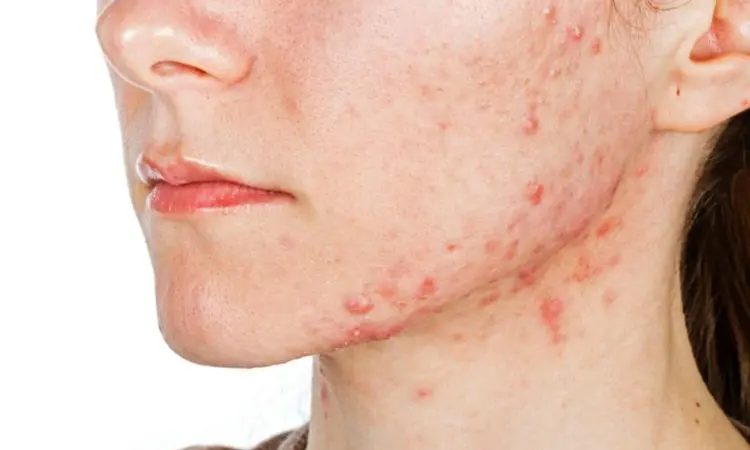- Home
- Medical news & Guidelines
- Anesthesiology
- Cardiology and CTVS
- Critical Care
- Dentistry
- Dermatology
- Diabetes and Endocrinology
- ENT
- Gastroenterology
- Medicine
- Nephrology
- Neurology
- Obstretics-Gynaecology
- Oncology
- Ophthalmology
- Orthopaedics
- Pediatrics-Neonatology
- Psychiatry
- Pulmonology
- Radiology
- Surgery
- Urology
- Laboratory Medicine
- Diet
- Nursing
- Paramedical
- Physiotherapy
- Health news
- Fact Check
- Bone Health Fact Check
- Brain Health Fact Check
- Cancer Related Fact Check
- Child Care Fact Check
- Dental and oral health fact check
- Diabetes and metabolic health fact check
- Diet and Nutrition Fact Check
- Eye and ENT Care Fact Check
- Fitness fact check
- Gut health fact check
- Heart health fact check
- Kidney health fact check
- Medical education fact check
- Men's health fact check
- Respiratory fact check
- Skin and hair care fact check
- Vaccine and Immunization fact check
- Women's health fact check
- AYUSH
- State News
- Andaman and Nicobar Islands
- Andhra Pradesh
- Arunachal Pradesh
- Assam
- Bihar
- Chandigarh
- Chattisgarh
- Dadra and Nagar Haveli
- Daman and Diu
- Delhi
- Goa
- Gujarat
- Haryana
- Himachal Pradesh
- Jammu & Kashmir
- Jharkhand
- Karnataka
- Kerala
- Ladakh
- Lakshadweep
- Madhya Pradesh
- Maharashtra
- Manipur
- Meghalaya
- Mizoram
- Nagaland
- Odisha
- Puducherry
- Punjab
- Rajasthan
- Sikkim
- Tamil Nadu
- Telangana
- Tripura
- Uttar Pradesh
- Uttrakhand
- West Bengal
- Medical Education
- Industry
Topical spironolactone effective for acne treatment with fewer adverse effects

Delhi: Topical spironolactone therapy is effective for acne treatment; however, there is a need for more trials with larger sample sizes and a standardized dose to find out its role in treatment, researchers state in a recent study published in The Journal of Dermatology.
The study found that topical spironolactone gives better results than other first-line acne treatments and exhibits fewer side effects. However, whether spironolactone can be used as the preferred treatment in acne's clinical management needs to be determined in further large-scale clinical trials.
Worldwide, acne vulgaris is the eighth most common disease and presents with noninflammatory and inflammatory skin lesions and other abnormalities. Oral spironolactone is used for acne treatment due to its antiandrogenic properties and inhibition of sebogenesis. Recent studies have shown that the topical form of spironolactone has similar efficacy as its oral form, with relatively lesser adverse events linked with its use.
Based on the above, Syeda Tayyaba Rehan, Dow University of Health Sciences, Karachi, Pakistan, and colleagues conducted a systematic review to investigate the safety and efficacy of topical spironolactone for treating acne vulgaris to establish an evidence-based understanding.
For this purpose, the research team comprehensively searched the online databases from the date of inception till March 18, 2022. It included all clinical trials experimenting with the role of topical spironolactone for acne treatment. The authors excluded articles that examined the effect of oral spironolactone or other topical agents. The Cochrane risk of bias assessment tool was used to assess the risk of bias in each study. The study findings have been reported in line with PRISMA 2020 guidelines.
The literature search provided 600 articles. Five clinical trials comprising 195 patients were included in the review.
The study revealed the following findings:
- Two of the five trials showed a high bias risk, while three had some concerns.
- Patients treated with topical spironolactone showed a significant decrease in closed comedones, papules, and lesions.
- Compared to the placebo, treatment with 5% spironolactone showed a significant decrease in total lesion count.
- In addition, 2% spironolactone showed efficacy over clindamycin and reduced the number of papules, comedones, and pustules, while the acne severity index was also considerably lowered.
- Spironolactone was not found to affect significant skin hydration, elasticity, sebum, redness, and melanin.
To conclude, topical spironolactone is an effective acne treatment. However, further large-scale clinical trials are required before spironolactone can be used as the preferred treatment for acne's clinical management.
Reference:
Rehan ST, Khan Z, Abbas S, Imran L, Munir S, Tahir MJ, Kheljee AZ, Eljack MMF, Ahmed A. Role of topical spironolactone in the treatment of acne: A systematic review of clinical trials-Does this therapy open a path towards favorable outcomes? J Dermatol. 2022 Nov 22. doi: 10.1111/1346-8138.16637. Epub ahead of print. PMID: 36412248.
Dr Kamal Kant Kohli-MBBS, DTCD- a chest specialist with more than 30 years of practice and a flair for writing clinical articles, Dr Kamal Kant Kohli joined Medical Dialogues as a Chief Editor of Medical News. Besides writing articles, as an editor, he proofreads and verifies all the medical content published on Medical Dialogues including those coming from journals, studies,medical conferences,guidelines etc. Email: drkohli@medicaldialogues.in. Contact no. 011-43720751


